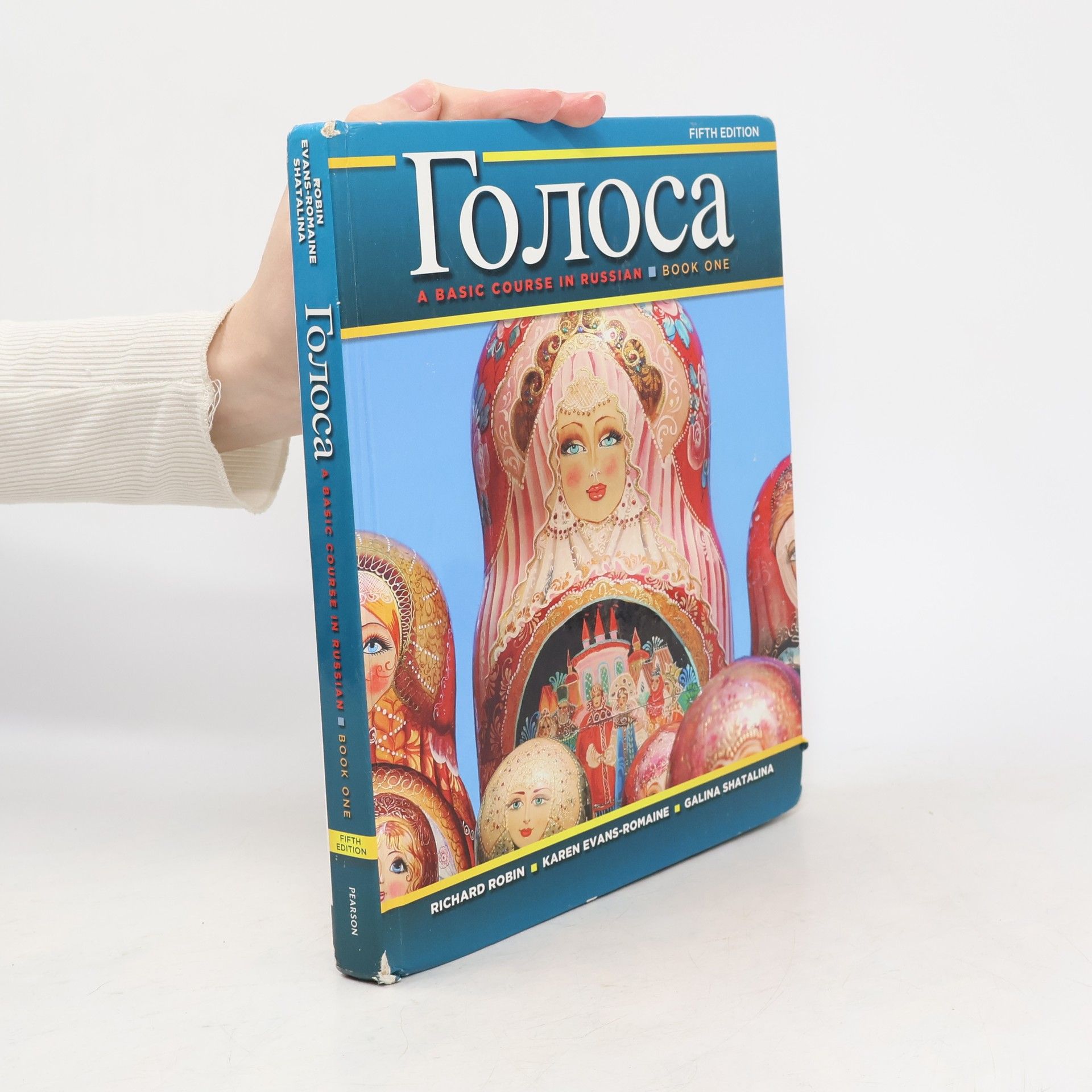Focusing on functional competence and cultural knowledge, this sixth edition of the course offers a contemporary approach to learning Russian. It aims to enhance language skills through practical applications, making it suitable for learners who want to engage with the language in real-world contexts while deepening their understanding of Russian culture.
Karen Evans-Romaine Libri





Focusing on functional competence in listening, speaking, reading, and writing, this course enhances language learning through contemporary methods and cultural insights. Comprehensive grammar explanations paired with structural practice ensure a well-rounded understanding of the Russian language. The sixth edition emphasizes practical communication skills, making it suitable for learners aiming to engage effectively in real-life situations.
The sixth edition emphasizes functional competence in all language skills—listening, speaking, reading, and writing—while enhancing cultural understanding. It offers thorough explanations of Russian grammar and includes structural practice to reinforce learning, making it a well-rounded resource for mastering the language.
Student Activities Manual for Golosa (Голоса)
- 288pagine
- 11 ore di lettura
The Fifth edition of the best-selling communicatively based text for beginning Russian is enhanced by a greater focus on contemporary culture and simplified, visual grammar explanations that will better engage your students. Golosa: A Basic Course in Russian, 5e strikes a true balance between communication and structure. It takes a contemporary approach to language learning by focusing on the development of functional competence in the four skills (listening, speaking, reading, and writing), as well as the expansion of cultural knowledge. It also provides comprehensive explanations of Russian grammar along with the structural practice students need to build accuracy. Golosa is divided into two books (Book 1 & Book 2) of ten units each. The units are organized thematically, and each unit contains dialogs, texts, exercises, and other material designed to enable students to read, speak, and write about the topic, as well as to understand simple conversations. The systematic grammar explanations and exercises enable students to develop a conceptual understanding and partial control of all basic Russian structures.This strong structural base enables students to accomplish the linguistic tasks and prepares them for further study of the language
Golosa: A basic course in Russian. Book 1
- 456pagine
- 16 ore di lettura
The Fifth edition of the best-selling communicatively based text for beginning Russian is enhanced by a greater focus on contemporary culture and simplified, visual grammar explanations that will better engage your students. Golosa:A Basic Course in Russian, 5e strikes a true balance between communication and structure. It takes a contemporary approach to language learning by focusing on the development of functional competence in the four skills (listening, speaking, reading, and writing), as well as the expansion of cultural knowledge. It also provides comprehensive explanations of Russian grammar along with the structural practice students need to build accuracy. Golosa is divided into two books (Book 1 & Book 2) of ten units each. The units are organized thematically, and each unit contains dialogs, texts, exercises, and other material designed to enable students to read, speak, and write about the topic, as well as to understand simple conversations. The systematic grammar explanations and exercises enable students to develop a conceptual understanding and partial control of all basic Russian structures. This strong structural base enables students to accomplish the linguistic tasks and prepares them for further study of the language.